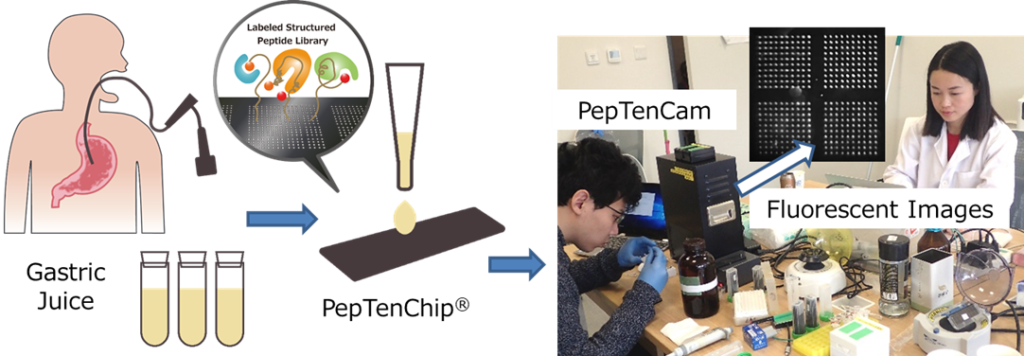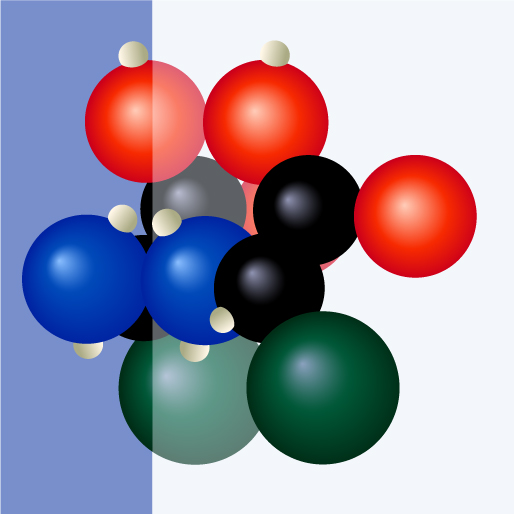📢 New Information
The manuscript concerning a clinical application of PepTenChip® was published in Journal of Pharmaceutical and Biomedical Analysis
Available online 21 October 2025, Page 117210
https://doi.org/10.1016/j.jpba.2025.117210

Title : Cancer risk-determination using gastric juice by a novel peptide microarray with statistical data processin
Gastric cancer is a disease caused by the cancerous transformation of mucosal cells in the stomach wall. Its incidence and mortality are among the top of common tumors, but unlike other tumors, gastric cancer has a precancerous stage, which is chronic atrophic gastritis with intestinal metaplasia. But there are two types of gastritis, one leading to cancerous transformation and the other not. However, at present, the only method for early diagnosis of gastric cancer is biopsy, and a simple, rapid, and accurate diagnostic method other than biopsy is desired by both physicians and patients. In this study, the recently completed novel bio-detection system was applied to classify the risk of carcinogenesis using gastric juice.
The gastric juice samples were assayed on a novel biochip without pre-treatment, and case classification was performed by multivariate analysis. As a result, gastric juice samples could be classified into two clusters according to their cancer risk. The classification reflecting the environment in the stomach was also successful, indicating that the present technology is useful for the early diagnosis of gastric cancer. In addition, the peptides suitable for discrimination of gastric juice specimens were investigated. Since early diagnosis of gastric cancer is important, a minimally invasive and simple diagnostic method was performed by the recently developed biochip-system. This study is intended as a technical proof-of-concept to demonstrate the feasibility of the biochip system.
This is the first attempt of biochips with novel principles and materials* applied to gastric juice samples for precancer determination. *Detail: Analytical Methods, Royal Society of Chemistry. 17, 4590-4598, 2025. DOI:10.1039/D5AY00426H.
The PepTenChip® system is a highly flexible with features that are not dependent on the type of specimen. By changing the specimen to body fluids such as blood or cerebrospinal fluid, it is expected to become a simple testing method for a wide variety of diseases. especially the disease responsible molecules are not clearly identified.


